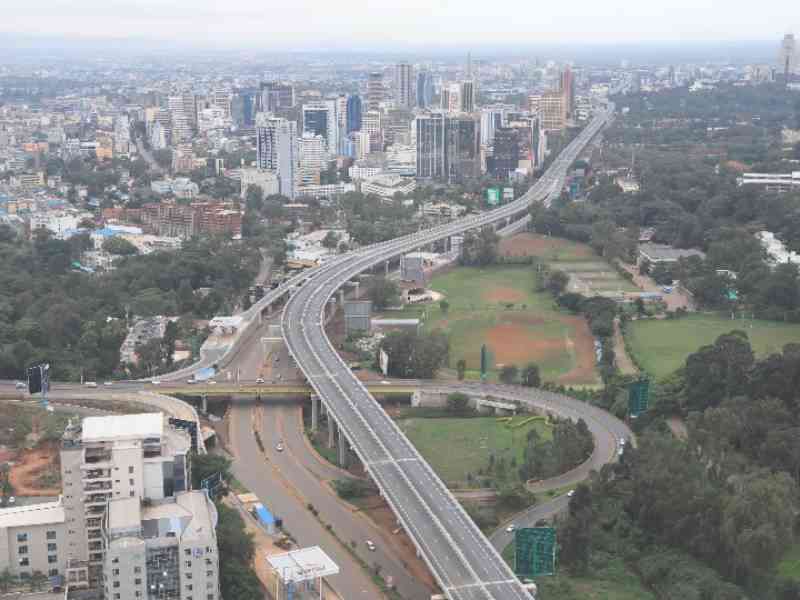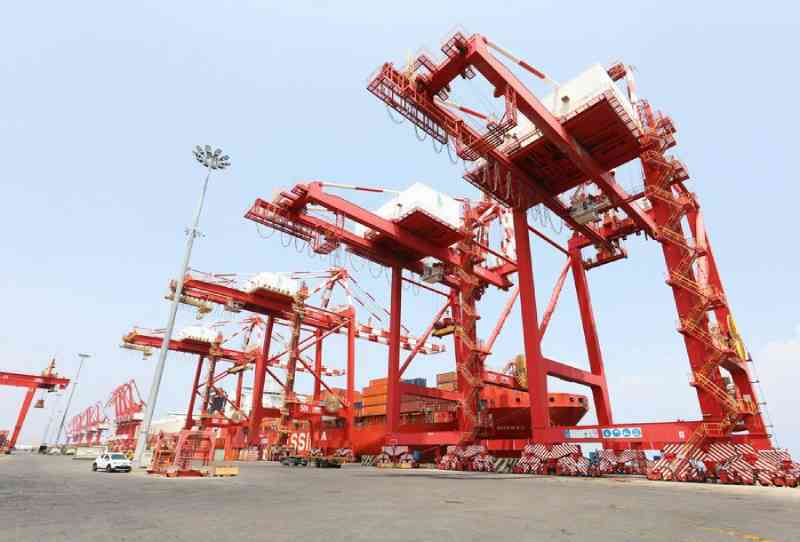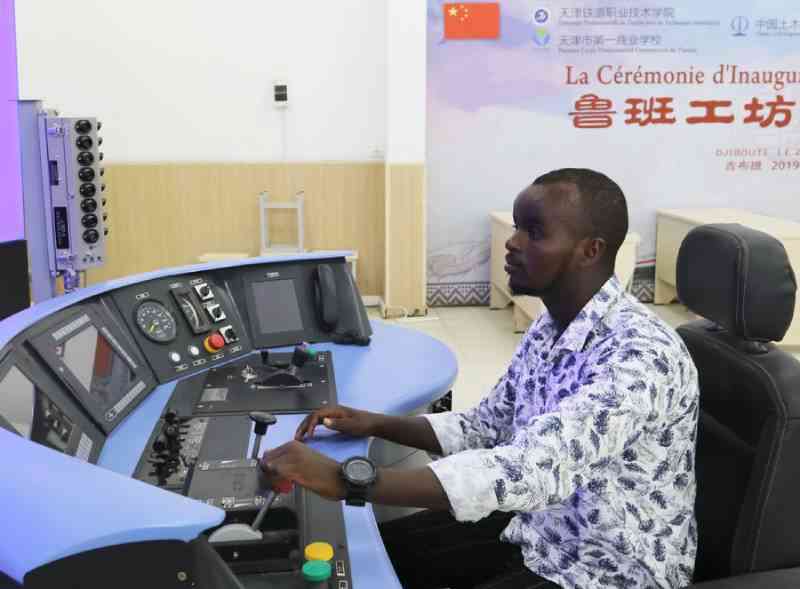
Having seen African people benefit from the decades-long cooperation with China, which ushered in newer infrastructure, more job chances and greater momentum for the continent's sustainable development, Malian Foreign Minister Abdoulaye Diop told Xinhua he deems the partnership "a friendly cooperation between brothers."
Indeed, a slew of cooperation projects and productive mechanisms for equal dialogue have all become clear proof of China-Africa cooperation that is carried out in line with the principles of sincerity, real results, affinity and good faith, and with commitment to the greater good and shared interests.
Better infrastructure
"Today, the outcomes of China-Africa cooperation are all over the African continent. The roads, railways, airports, ports, high-rise buildings, stadiums and other structures that China helped build can be seen everywhere," said Chinese Ambassador to Liberia Ren Yisheng in a recent article published in Liberian media.
Between 2000 and 2020, China helped African countries build 13,000-plus-km-long railways, nearly 100,000 km of highways, about 1,000 bridges, nearly 100 ports and more than 80 large-scale power facilities.
China has also aided the construction of more than 130 medical facilities, 45 sports venues and more than 170 schools, trained more than 160,000 professionals across various fields and created more than 4.5 million jobs for Africa, said the ambassador.

Since the existing infrastructure gap acts as a drag on Africa's economic growth, cooperation in upgrading infrastructure is of particular relevance for the continent. The African Development Bank reckoned that improved infrastructure will facilitate Africa's domestic and international trade, reduce business costs and enhance competitiveness both as an exporter and an investment destination.
In this regard, China has been playing a significant role. "In 2020, for instance, Chinese firms were responsible for 31 percent of all infrastructure projects in Africa with a value of 50 million U.S. dollars or more," Deloitte, a consultancy company, said in a report.
Investment in African infrastructure is "a global public good in the context of the worldwide significance of Africa's demographic evolution and its necessary productive transformation," the Organization for Economic Cooperation and Development said in a report.
China has been providing public goods through its cooperation with Africa despite COVID-19 disruptions. After the onset of the pandemic, Chinese and local staff were struggling to overcome difficulties to keep more than 1,100 cooperation projects running consistently, and the implementation rate of the outcomes of the Forum on China-Africa Cooperation (FOCAC) Beijing Summit has exceeded 70 percent, said Ren.
Describing Africa's infrastructure achievements as an illustration of the win-win partnership with China, Diop, the Malian minister, said, "since the creation of the FOCAC in 2000, China-Africa relations have continued to grow, particularly in the economic, industrial and agricultural and diplomatic areas."
During the 8th Ministerial Conference of the FOCAC held in Senegal in November 2021, China pledged to jointly roll out nine programs with African countries, and upgrade China-Africa cooperation in various fields including medical and health care, improvement of people's livelihood, green development, digital economy and capacity building.
In the Dakar Declaration issued during the conference, China welcomes and encourages African countries to join the Belt and Road cooperation.
Over the past years, the China-proposed Belt and Road Initiative (BRI) has helped enhance infrastructure connectivity across the continent and boost intra-African trade in the long run. It has become even more attractive to Africans, given that China has aligned the initiative with the Agenda 2063, an economic blueprint proposed by the African Union.
In Kenya, for instance, the 480-km-long Mombasa-Nairobi Standard Gauge Railway financed and built by China has greatly facilitated the movement of goods and passengers. As one of the flagship BRI projects, it is the first modern railway built in Kenya in the past century, also the country's largest infrastructure project since its independence in 1963.
Stay informed. Subscribe to our newsletter

Job opportunities
China-Africa cooperation in trade and investment has helped to create a booming job market in Africa.
Since 2017, China's imports in services from Africa have been growing at an average annual rate of 20 percent, creating close to 400,000 jobs for the continent every year, said a white paper titled "China and Africa in the New Era: A Partnership of Equals" released by China in November 2021.
Chinese private companies have become the main investment force in Africa. With more than 80 percent of their employees being locals, they have created millions of jobs. By the end of 2020, China has established over 3,500 companies across Africa.
Increased investment and upgraded infrastructure drive the growth of various industries, naturally generating more jobs. For example, when it comes to a 56.5-km-long asphalt road recently completed by the China Communications Construction Company in Ethiopia's Oromia region, the local government said it believes that it will not only facilitate the transportation of agricultural products, but more importantly, to unleash the potential of tourism, a catalyst for job growth and economic prosperity.
Not coincidentally, the 1,344-km-long Benguela Railway constructed by the China Railway 20 Bureau Group Corporation in Angola has delivered win-win outcomes. Chinese enterprises have provided technology, experience and standards to Africa, while local employees have acquired jobs, skill training and higher income, said Zhu Qihui, chairman of the board of the Chinese group's subsidiary in Angola.
The above-mentioned Mombasa-Nairobi railway has also created 46,000 direct and indirect jobs for local communities. 
Sustainable growth
On top of the impressive achievements made through their cooperation in the past decades, China is continuing to play a key role in fast-tracking Africa's development and lend support to the sustainable development of the continent.
China has been Africa's largest trading partner for 13 consecutive years by the end of 2021. China has promised to provide zero-tariff treatment on 98 percent of taxable items originating in the least-developed countries, including Togo, Djibouti and Rwanda, and has become Africa's second-largest agricultural export destination.
"The biggest feature of China-Africa cooperation is mutual benefit and common development," said Ren, the Chinese ambassador, adding China welcomes Africa to take the express train of China development and share its benefits.
In these turbulent and changing times, observers are still optimistic that flourishing China-Africa cooperation will withstand the test of time and bring more mutual benefits for both sides through synergy between their development plans.
"As for China's solutions to global issues, I'm impressed most by the Global Development Initiative (GDI) and the Global Security Initiative (GSI). They are in line with the current international calls and the UN Sustainable Development Goals, and are also significant to the African continent," said David Monyae, director of the Center for Africa-China Studies at the University of Johannesburg.